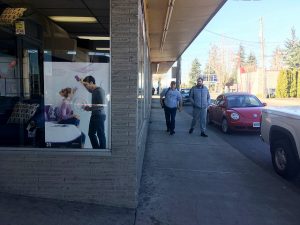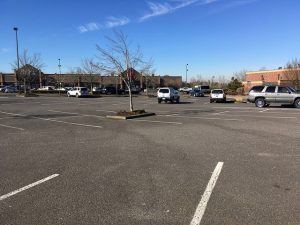

At the cutting edge of sprawl retrofit, Portland is working to making biking desirable in a neighborhood originally built for cars, where the 1920s-style commercial lots to the north face unbroken sidewalks, and the 1950s-style lots to the south face a two-row parking lot.
“Portland’s leaders [are] thinking these two blocks are the perfect place to begin what many of them see as the great work of the 21st century: undoing the errors of car-dependent design that began in the 1940s.
If this row of buildings successfully leads Gateway’s transition to a more walkable, bikeable neighborhood, it’d put the street at the forefront of a national movement to redevelop close-in suburban neighborhoods.
The city’s plan is to preserve parking on both sides of the street, but flip the parking and bike lanes so a combination of curbs and parked cars would separate bike and auto traffic.
That’s why Halsey and its couplet street, Weidler, are slated for $20 million in public investmentin 2018, including a major new city plaza, shorter crosswalks and parking-protected bike lanes at the hub of a new 39-mile low-stress biking network through the area.”